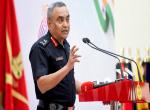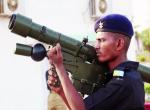The May 25th extremist attack by Maoists in Chhattisgarh was one of the depredations that hit India. But, more tragic is what follows – delayed tactical response, leadership confusion and helplessness, scripted statements carrying no conviction and even ministers looking for opportunities to derive political mileage. In the world of security what happens is important, but what decides the end game is how the governments respond to them. While the former is not always and fully in their control, the latter is a matter of their conscious choice. The tragedy of what they fail to protect and prevent is compounded by the wrong or inadequate response that guarantees perpetual failures.
There is a predictable pattern of discourse that follows major attacks. Political statements and counter statements, Centre versus State blame game, accusations of intelligence and security failure, all relevant, but leading nowhere. There is no clear and unequivocal message to the perpetrators, enunciation of a new national policy and strategy, initiatives towards capacity building and pressing into action innovative tactical plans.
Prevention of this obfuscated discourse necessitates clarity on the fundamentals. Left wing extremists are enemies of the nation – their ideology, political goals, trans-national linkages, strategic plans all make it amply clear. Their history of siding with the Chinese during the 1962 war, supporting Pakistan Army’s genocide in East Pakistan and dubbing Indian intervention as imperialist, aligning with Kashmiri separatists and supporting North-East insurgents leave no doubt about their intentions. Their putting in place an 18,000 plus guerrilla force, nearly 16,000 sophisticated arms, weapon procuring and manufacturing infrastructure, fund raising abilities and an effective propaganda apparatus clearly indicate their burgeoning capacities. Misled by the rhetoric of them being social activists or crusaders for the poor, we should not underestimate their intentions and capabilities. There is no room to treat them anything other than being enemies of the state who have to be fought, vanquished and neutralised.
The second point that obfuscates the discourse is its political dimension. The message that goes out to the Naxalites is that the government is confused and weak, dishonest and insincere, lacks the gumption to take the battle to its logical end, and wilts under the pressure of media, local level political workers, extremist linked NGOs, etc. The political cross-fire between the Centre and the States only gladdens their hearts. There is a need to make the message to the extremists loud and clear that the state will use all its power to protect its sovereign rights. In the instant case, the Congress leaders were wrong in trying to give it a political colour and advance possible conspiracy theories. There is no ambiguity whatsoever about the role and responsibility of the Centre and the States. Article 355 of the Constitution unequivocally affirms that “It shall be the duty of the Union to protect every State against external aggression and internal disturbance”. Left Wing Extremism (LWE) is no more a “public order” issue, and falls well within the innermost circle of what Justice Hidayatullah calls “three concentric circles” of threats. In the judgement in Ram Manohar Lohia vs. State of Bihar (1965), the Supreme Court asserted that when a threat transcends limits of public order and threatens internal security, the overriding responsibility lies with the Union government. However, to make it happen, the Prime Minister needs to be strong to have his writ run both at the Centre and in the States.
The next requirement is strong laws with an efficient criminal administration system to administer them. The threats, internal or external, that threaten the unity, integrity and sovereignty of India, require a different jurisprudence than ordinary criminal laws and must empower the state to deter and neutralise the enemies. The front organisations, masquerading as NGOs and think tanks, who skilfully assist the extremists in exploiting discontent and subvert them to take recourse to the gun must be made accountable. Those who provide them intellectual and ideological space by projecting them as social revolutionaries are as guilty as the gullible people who take to arms. It is also necessary that the justice system functions with speed, fairness, transparency and honesty. To bring down the crisis of legitimacy, any illegal police action or efforts to frame the innocents should be dealt with an iron hand.
The state police forces, due to their superior knowledge of terrain, language and customs of the local people. are best suited for counter-LWE operations. There is an urgent need to increase their strength, provide them better leadership, training, weapons and equipment. It is pertinent to note that Naxalism has assumed deep roots in States where the number of policemen available per one lakh population is amongst the lowest and much below the national average of 135. This situation should be corrected immediately and minimum of 200 policemen per lakh population must be made available to the Naxal affected states. Not just quantity, but quality equally matters. What India requires is, as the Padmanabhaiah Committee advocated, a “highly motivated, professionally-skilled, infrastructurally self-sufficient and sophisticatedly trained police force.”
The availability of real-time actionable intelligence is critical for launching surgical operations against the Naxal leadership and guerilla armies. For this the operational capabilities of state intelligence, right up to the police station levels must be bolstered for undertaking tactical operations. A good intelligence often has made the difference between victory and defeat, and life and death. We have to develop a totally different set of capabilities to cater to our rapidly changing intelligence requirements. This needs to be done at several levels—from our training modules to doctrines to equipment. This transformation has to be across the spectrum of our intelligence capabilities and operations. Concerted efforts to choke Maoists’ sources of finance and channels of procuring weapons also deserve high priority.
The war is difficult but winnable. The need is for capacity building both at the Central and State levels and right leadership to convert plans into realities on the ground. They have started the war; it will be finished by us.
Published Date: 6th June 2013






.jpg)


Post new comment